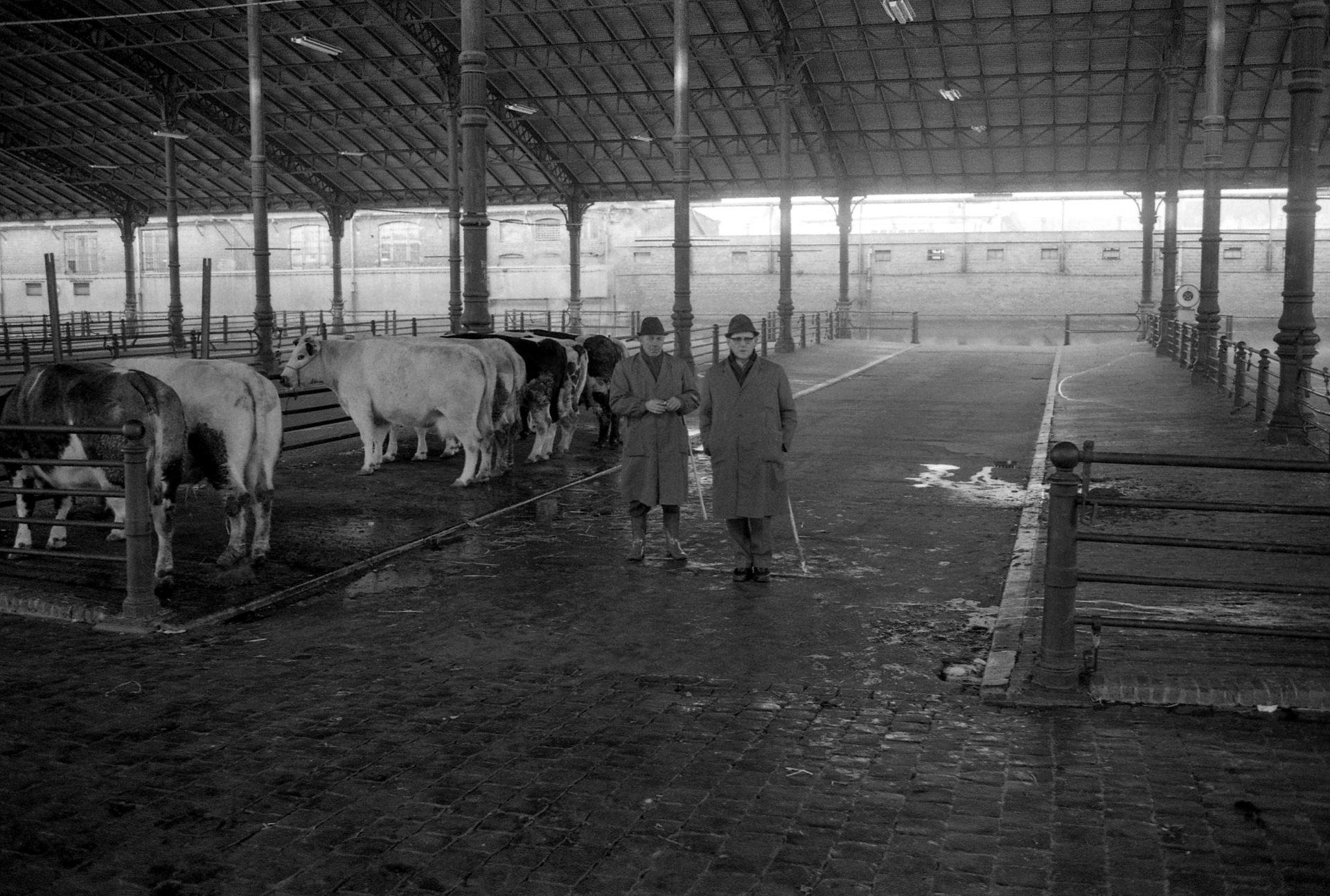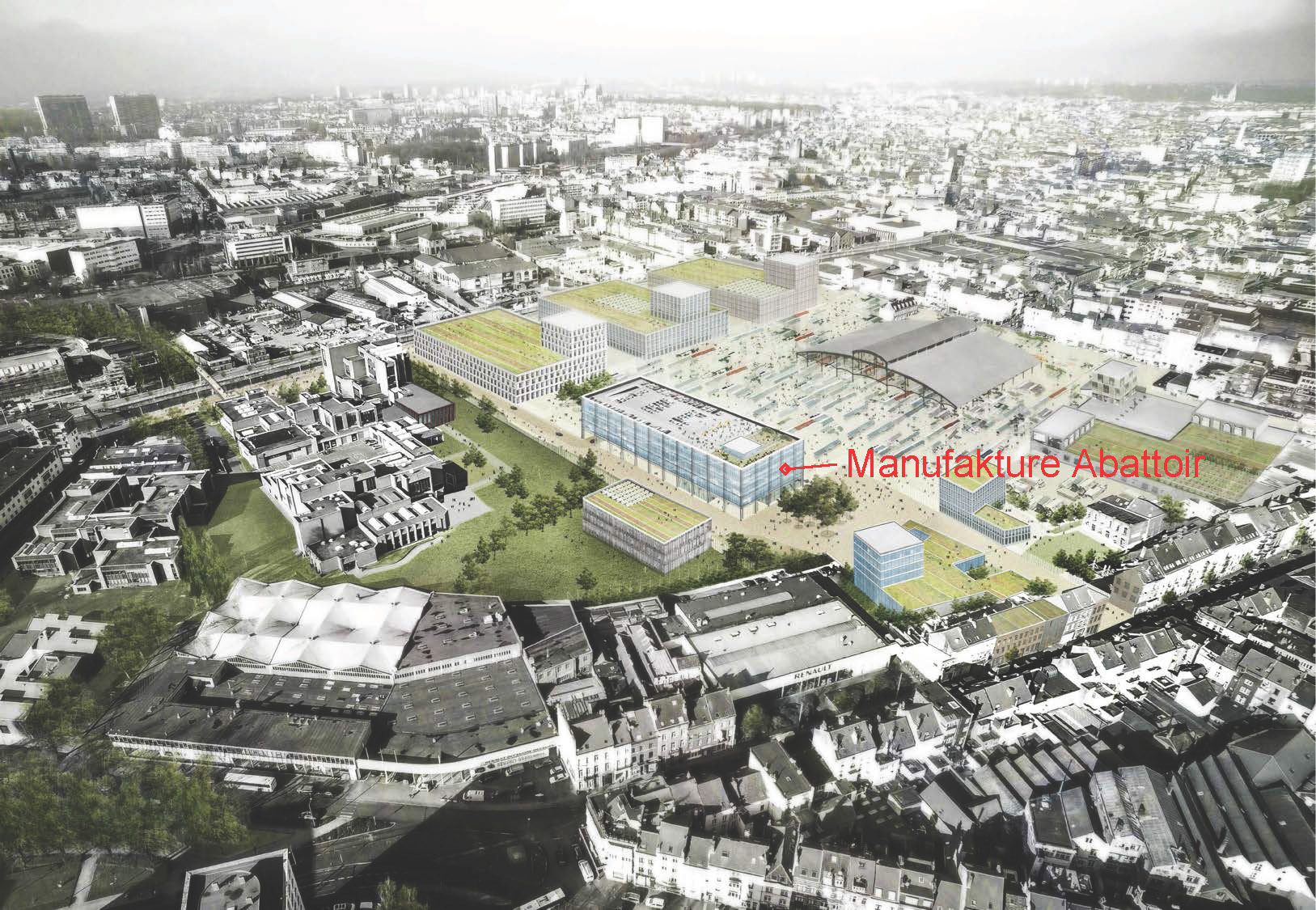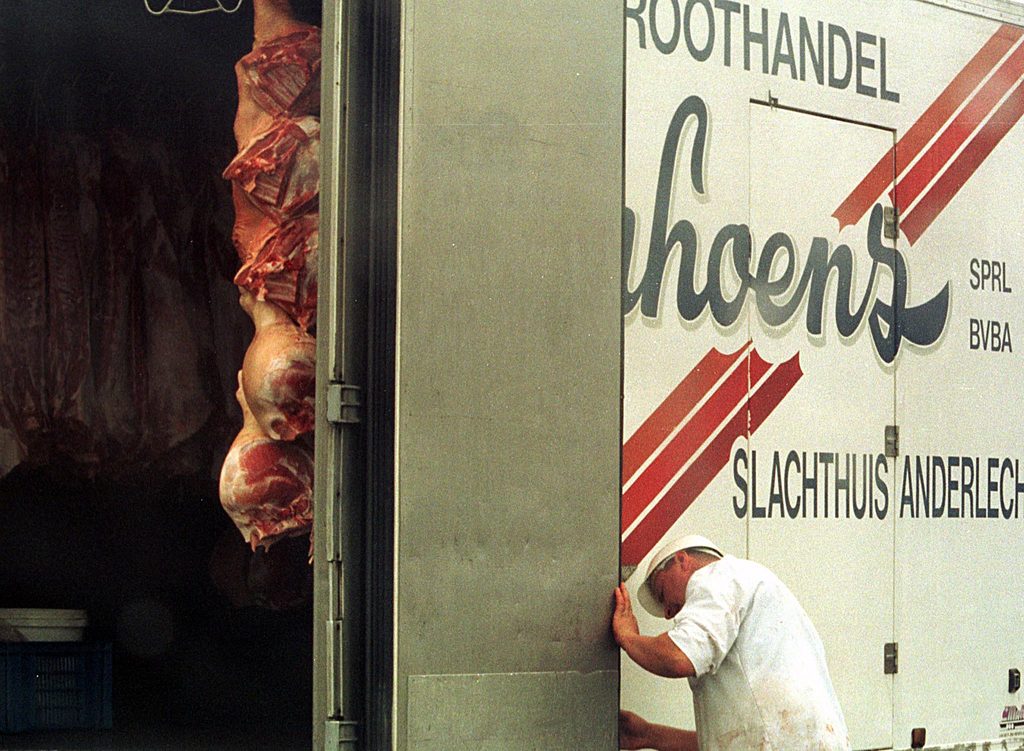After 140 years of activity, the Anderlecht Abattoir will end animal slaughter on its premises. The company has chosen to not renew their environmental permit, which expires in 2028.
The decision was made due to uncertainty around the continued legality of their practices and due to the changing fabric of the neighbourhood, a spokesperson for the company told RTBF.
The Anderlecht site is one of the few short-circuit meat production operations in Belgium, as many slaughterhouses in Wallonia and Flanders are connected to supermarkets, according to Brussels Minister-President Rudi Vervoort.
The Anderlecht slaughterhouse is also a key supplier of Halal and Kosher meat in Belgium, as the ritual slaughter practices are banned in Flanders and Wallonia.
Within five years, the old slaughterhouse in Anderlecht will be torn down and be replaced by the new "Manufakture" building, which will not include a slaughter area. The food market at the Abattoir will continue, but the building that hosts it will be renovated.

Anderlecht's abattoir in January 1972. Credit: Belga Photo Archives
The new "Manufakture" building will have meat-cutting and processing workshops on the ground floor, and parking lots on the other floors. On the rooftop, the Brussels Region has proposed to construct the first public open-air pool.
"As far as slaughtering is concerned, we felt that there was in fact too much uncertainty for the future," Paul Thielemans, spokesperson for the Abattoir company that runs the slaughterhouse, told RTBF.
A new neighbourhood or impending ban?
The Anderlecht slaughterhouse is next to the bustling canal area and only a ten-minute walk away from the South Station. The 8-hectare area is at the centre of an urban redevelopment plan which would see over 200 housing units constructed in proximity, including public housing units on-site.
The noise, smell and shipments that come with animal slaughter would make these housing projects untenable. "Combining the two activities a few steps from each other could create environmental and mobility concerns, at least," Thielemans told RTBF.
Currently, 80% of slaughters that take place at the Anderlecht site are ritual slaughters without prior stunning, Thielemans notes. These ritual slaughters produce Halal or Kosher meat for the Muslim and Jewish communities, and have been a point of contention in the Brussels Parliament.
Last year, a ban on ritual slaughter without prior stunning narrowly failed to pass in the Parliament. The uncertainty of whether it will stay legal pushed the slaughterhouse company to wind up its future activity.
"What will happen if the political majority in the Region changes in the coming months?" Thielemans said. The Jewish and Muslim communities "will never agree to come here if there is no more ritual slaughter. With 20% of current customers, a slaughterhouse would no longer be profitable," the spokesperson explained.

Redevelopment plan of the slaughterhouse building. Credit: Abattoir SA
For religious communities, the decision to end animal slaughter in Anderlecht is troubling. "Our meat will have to come from abroad to keep the ritual slaughter that we demand," Karim El Morabet, a halal butcher working in Anderlecht explained to BX1. "It would be a shame to abandon this and enrich other countries."
New slaughterhouse planned?
Brussels Minister-President Rudi Vervoort confirmed to RTBF that the Brussels Region is scouting out potential locations for a new slaughterhouse, with findings to be announced in March 2024.
"I think it would be a good thing to keep a meat abattoir in the region in the future. It would allow us to retain a degree of independence in the meat market," Vervoort told RTBF.
"It's also more cost-effective to have a short supply chain. You don't have to truck in carcasses slaughtered elsewhere, which means less transport. Finally, I don't think we should forget that there are still easily 80-85% of families in Brussels who consume meat."
In July, Mayor of Anderlecht Fabrice Cumps told BX1 that it would be possible to invest in a public slaughterhouse.

